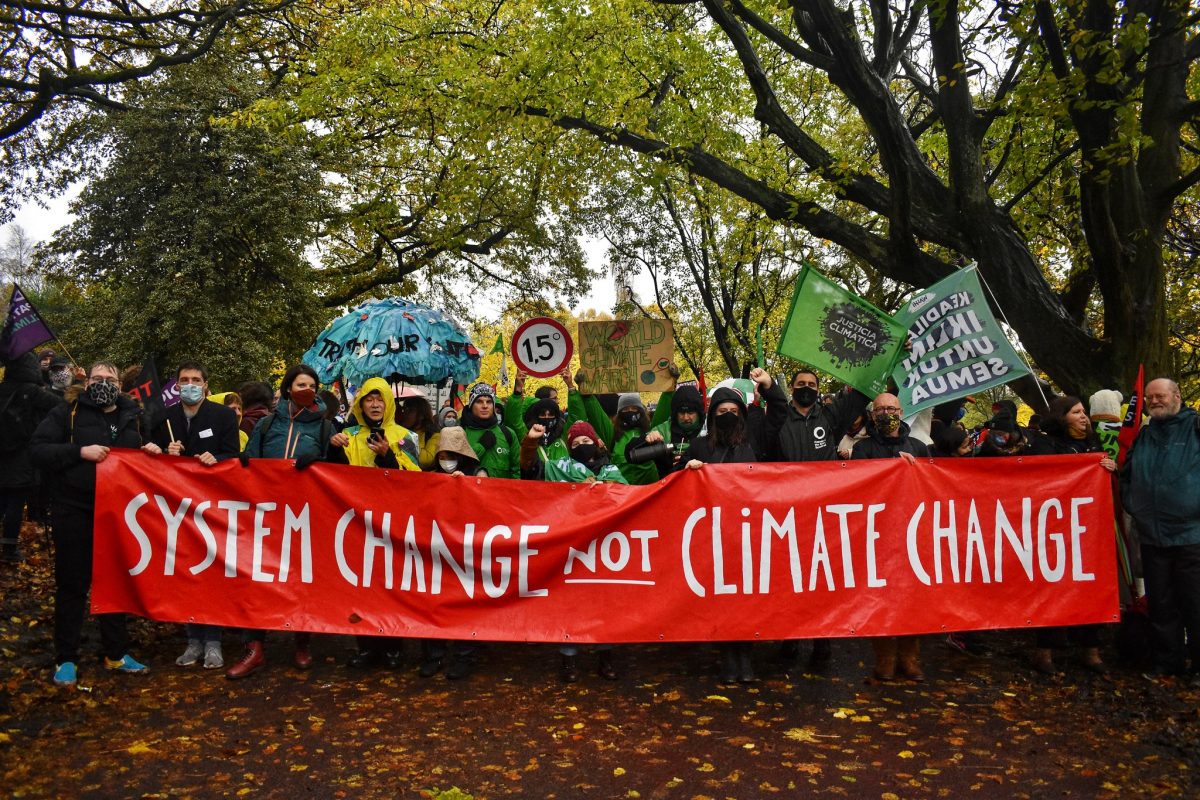
Biofuels for Europe driving land grabbing in Africa
The amount of land being taken in Africa to meet Europe’s increasing demand for biofuels is underestimated and out of control, new investigations by Friends of the Earth reveal today.
The research, which looked at 11 African countries, found at least five million hectares of land – an area the size of Denmark – is being acquired by foreign companies to produce biofuels mainly for the European market.
The report, ‘Africa: Up For Grabs’, reveals how local communities are having their land taken and there are few safeguards for local community land rights. Forests and natural vegetation are being cleared, and biofuels are competing with food crops for farmland.
Duncan McLaren, Friends of the Earth Scotland Chief Executive, said:
“This research shows how the rich world’s demand for biofuels has triggered a neo-colonial land grab in Africa. Current proposals for massive imports of woody biomass into the UK to generate electricity, such as those in Scotland by Ayrshire Power at Hunterston and Forth Ports in Edinburgh and Dundee, risk fuelling a similar rush to annex African forests.
“Growing world demand for woody biomass for energy production is already stimulating new developments in Africa and elsewhere in the global South where sustainable forest practices cannot be guaranteed: such as West Papua, Guyana, Congo and Liberia.
“The Scottish Government should reject Scottish proposals to import biomass for electricity production. Even more land will be required for biofuels if the European Union is to reach its target of 10% of transport fuels from renewable sources by 2020, according to the research.”
Adrian Bebb, food and agriculture campaigner for Friends of the Earth Europe, said: “Our research shows that Europe’s demand for biofuels is a major driver of land grabbing in Africa. Local communities are facing increasing hunger and food insecurity just so Europe can fuel its cars. The EU must urgently scrap its biofuel policy. Europe must invest instead in environmentally friendly agriculture and decrease the energy we use for transport.”
This is just one example of Europe’s over-use of the world’s resources. Friends of the Earth Scotland is calling on the EU to start measuring and curbing its use of land, water, materials, and climate emissions around the world.
ENDS
For media enquiries please contact:
Per Fischer, Press Office, Friends of the Earth Scotland t: 0131 243 2719
Notes to Editors
Friends of the Earth Europe (2010, August). ‘Africa: Up For Grabs’ www.foeeurope.org/agrofuels/FoEE_Africa_up_for_grabs_2010.pdf
A map showing the scale of the problems and a list of companies involved in growing biofuels in Africa can be found here: www.foeeurope.org/agrofuels/FoEE_Africa_up_for_grabs_2010-Map-Tables.pdf
Indonesian energy and plantation company Medco is developing plantations for „renewable energy‟ wood pellets and wood chips for export in Merauke District, West Papua.16 Medco‟s management plan, for an area still covered in rainforest, states: “The …land will be divided into six regions in which all broad-leaved trees in one of the six regions will be completely cut down 17 The forests and livelihoods of indigenous peoples in Merauke are already under threat from palm oil expansion for agrofuels, a mega-rice project and mining.
In the Republic of Congo, Canadian firm MagForestry Corp currently ships around 350,000 tonnes of woodchips to Europe for paper production, and expects demand to grow in the biomass energy sector. MagForestry owns 68,000 hectares of eucalyptus plantations which had previously been established by Shell Renewables for bioenergy.
In Guyana, UK bioenergy firm Celenergen has acquired a long lease for over 2,000 hectares and is looking at a future 61,000 hectares for bamboo and marjestica tree plantations, which they plan to establish on grasslands. These are intended for cofiring with coal in the UK.
Swedish power group Vattenfall plans to invest in a Liberian biomass project. The project would see the production of wood chips from Liberian rubber tree waste used to reduce dependence on coal in Vatenfall’s European power stations. Unfortunately the rubber tree ‘waste’ is currently a source of charcoal for local use, and the price of charcoal locally has already doubled, as a larger share of rubber wood is sold for wood chip rather than charcoal.
Friends of the Earth Scotland exists to help people in Scotland look after the planet for everyone’s future. We think globally and act locally in Scotland, delivering solutions to climate change by enabling and empowering people to take both individual and collective action. We offer help to people with the big things in life – helping to sustain a healthy society and environment. We believe that all of our children’s futures will be better because of what we do. www.foe-scotland.org.uk
